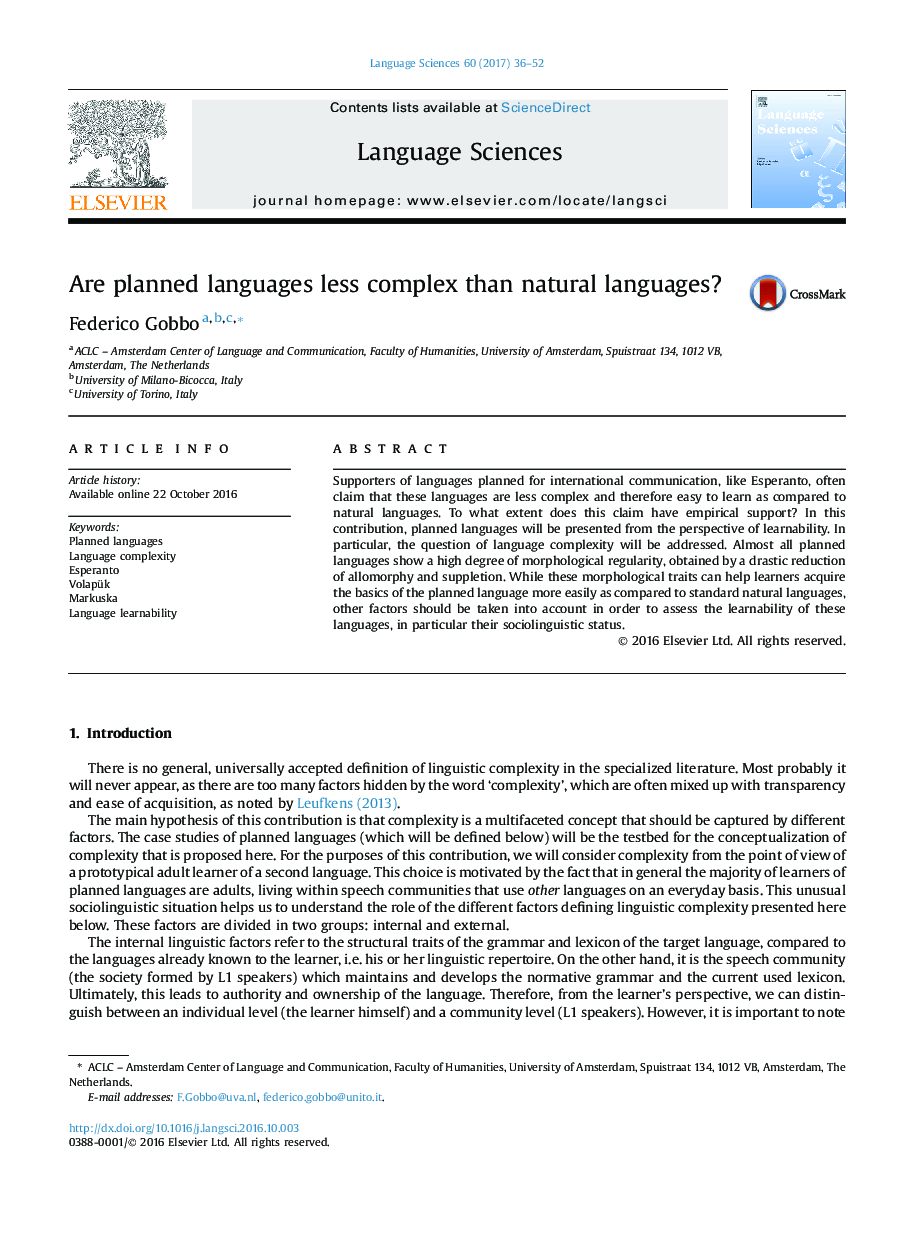| کد مقاله | کد نشریه | سال انتشار | مقاله انگلیسی | نسخه تمام متن |
|---|---|---|---|---|
| 5124561 | 1488143 | 2017 | 17 صفحه PDF | دانلود رایگان |
- Planned languages are more regular than natural languages in their morphology.
- The reduction of complexity is stronger in the case of International Auxiliary Languages for their communication purposes.
- Simplification does not guarantee that the language will be 'easier' to learn: many factors should be taken into consideration.
- Planning a secret language in the classroom apparently fosters pupils' metalinguistic awareness.
Supporters of languages planned for international communication, like Esperanto, often claim that these languages are less complex and therefore easy to learn as compared to natural languages. To what extent does this claim have empirical support? In this contribution, planned languages will be presented from the perspective of learnability. In particular, the question of language complexity will be addressed. Almost all planned languages show a high degree of morphological regularity, obtained by a drastic reduction of allomorphy and suppletion. While these morphological traits can help learners acquire the basics of the planned language more easily as compared to standard natural languages, other factors should be taken into account in order to assess the learnability of these languages, in particular their sociolinguistic status.
Journal: Language Sciences - Volume 60, March 2017, Pages 36-52
